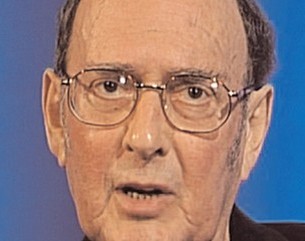Amongst Pinter's plays, Betrayal is one of the most naturalistic in tone and technique. The simplicity of the plot and the dialogue is ironic given that the situation is layered and complex,.

“Betrayal” is the Broadway play by Harold Pinter starring Tom Hiddleston. BETRAYAL is the story of an illicit affair that unfolds in reverse—from the end of a marriage to the first forbidden spark. Starring Golden Globe and Olivier Award winner Tom Hiddleston. Harold Pinter's work is represented by Judy Daish Associates Limited - and applications for all performances and uses of Harold Pinter's work (including amateur and professional stage performances, radio broadcasts, television transmissions and readings and use of extracts) need to be addressed to them in the first instance and in advance of finalizing your plans. Betrayal is a new departure and a bold one. Pinter has found a way of making memory active and dramatic, giving an audience the experience of the mind's accelerating momentum as it pieces together the past with a combination of curiosity and regret.
Betrayal (1978) overview
Harold Pinter’s 1978 play employs a reverse-chronological structure to tell the story of an extra-marital affair. Inspired by Pinter’s own seven-year affair with Joan Bakewell – who would also write a play, Keeping in Touch, in order to tell her side of the story – Betrayal is a three-hander in which a number of different betrayals are shown to take place.
Emma is having an affair with Jerry, a close friend of her husband, Robert. Jerry is also married, to Judith. For five years this relationship is clandestine, but then Emma confesses her infidelity to Robert – producing another betrayal in the context of the play.
The scenes unfold in reverse order. The play starts in 1977, when Jerry and Emma meet in a pub for the first time since the affair had ended two years previously. It’s a scene of restraint and melancholy; the pain is only semi-softened by the passing of time. The play’s final scene ends when the affair begins, in 1968, at a party in which Jerry declares his love for Emma.
There are nine scenes in all. Emma and Jerry acquire a small London flat in which to conduct their affair. The pivotal scene takes place in a hotel room in Venice where Robert and Emma are on holiday. Robert discovers Emma has received a letter from Jerry, and Emma admits she’s been having an affair with him.

Both the affair and Robert and Jerry’s friendship continue after this, though the relationship between all of them has altered. The play’s particular chronology lends an extra emotional weight to each scene. The audience knows where the characters are headed and the impact of their choices on all of their lives. The dialogue is typically economical, but Pinter loads it with meaning and power-play between all three characters.
Key productions of Betrayal
Betrayal was first produced by the National Theatre in 1978, with Penelope Wilton as Emma, Michael Gambon as Jerry and Daniel Massey as Robert. It has been revived many times since, in many countries. Peter Hall directed its Broadway premiere in 1980. A 2011 West End production was directed by Ian Rickson and starred Kristin Scott Thomas, Douglas Henshall and Ben Miles.

Betrayal (1978) overview
Harold Pinter’s 1978 play employs a reverse-chronological structure to tell the story of an extra-marital affair. Inspired by Pinter’s own seven-year affair with Joan Bakewell – who would also write a play, Keeping in Touch, in order to tell her side of the story – Betrayal is a three-hander in which a number of different betrayals are shown to take place.
Emma is having an affair with Jerry, a close friend of her husband, Robert. Jerry is also married, to Judith. For five years this relationship is clandestine, but then Emma confesses her infidelity to Robert – producing another betrayal in the context of the play.

The scenes unfold in reverse order. The play starts in 1977, when Jerry and Emma meet in a pub for the first time since the affair had ended two years previously. It’s a scene of restraint and melancholy; the pain is only semi-softened by the passing of time. The play’s final scene ends when the affair begins, in 1968, at a party in which Jerry declares his love for Emma.
There are nine scenes in all. Emma and Jerry acquire a small London flat in which to conduct their affair. The pivotal scene takes place in a hotel room in Venice where Robert and Emma are on holiday. Robert discovers Emma has received a letter from Jerry, and Emma admits she’s been having an affair with him.
Both the affair and Robert and Jerry’s friendship continue after this, though the relationship between all of them has altered. The play’s particular chronology lends an extra emotional weight to each scene. The audience knows where the characters are headed and the impact of their choices on all of their lives. The dialogue is typically economical, but Pinter loads it with meaning and power-play between all three characters.
Key productions of Betrayal
The Betrayal Harold Pinter Song

The Betrayal Harold Pinter Journal
Betrayal was first produced by the National Theatre in 1978, with Penelope Wilton as Emma, Michael Gambon as Jerry and Daniel Massey as Robert. It has been revived many times since, in many countries. Peter Hall directed its Broadway premiere in 1980. A 2011 West End production was directed by Ian Rickson and starred Kristin Scott Thomas, Douglas Henshall and Ben Miles.